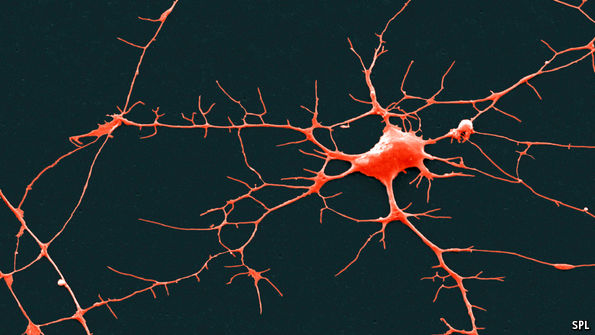Researchers have built an artificial neuron

SINCE nobody really knows how brains work, those researching them must often resort to analogies. A common one is that a brain is a sort of squishy, imprecise biological version of a digital computer. But analogies work both ways, and computer scientists have a long history of trying to improve their creations by taking ideas from biology. The trendy and rapidly developing branch of artificial intelligence known as “deep learning”, for instance, takes much of its inspiration from the way biological brains are put together.
The general idea of building computers to resemble brains is called neuromorphic computing, a term coined by Carver Mead, a pioneering computer scientist, in the late 1980s. There are many attractions. Brains may be slow and error-prone, but they are also robust, adaptable and frugal. They excel at processing the sort of noisy, uncertain data that are common in the real world but which tend to give conventional electronic computers, with their prescriptive arithmetical approach, indigestion.The latest development in this area came on August 3rd, when a group of researchers led by Evangelos Eleftheriou at IBM’s research…Continue reading
Source: Economist




